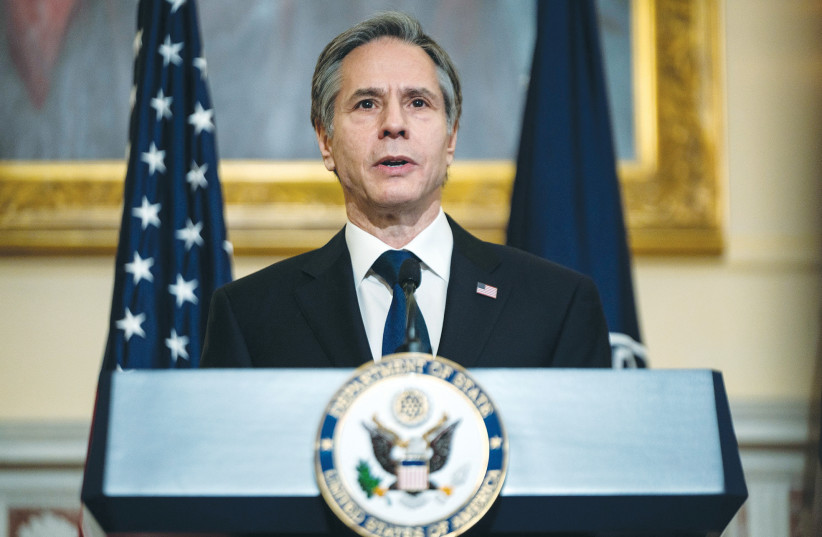If Iran postpones its return to talks for too long, the US will not agree to return to the 2015 nuclear agreement, US Special Representative to Iran Rob Malley said, as Iranian President Ebrahim Raisi rejected “Western pressure” on Saturday.
“The Iranian government says it still needs time, because it was just put into office and is trying to organize itself, which is understandable,” Malley told Bloomberg on Friday. “But at the same time, time is passing and... we’ll have to see if Iran is seriously prepared to come back to talks and what nuclear advances it has made in the meantime.”
The US and Iran engaged in indirect negotiations from April-June of this year in Vienna, with an eye toward returning to compliance with the Joint Comprehensive Plan of Action, the 2015 nuclear agreement between Iran and world powers. The JCPOA placed restrictions on Iran’s uranium enrichment, which would expire in 2030. The Trump administration left the deal in 2018, and US President Joe Biden said he would return to it and lift some of the sanctions Trump enacted. Meanwhile, in recent months Iran escalated its uranium enrichment and uranium metal development to unprecedented levels.
Iran suspended talks in June, after Raisi, the more anti-Western candidate, was elected president, and has not said if and when it would return.
Malley quoted US Secretary of State Antony Blinken as saying, “We can’t wait forever.”

“At some point, the [nuclear] advances will be such as to make a return to the JCPOA much less viable to the US than it would otherwise be. So we’re prepared to be patient... but let’s not drag this on for too long, because at some point we’ll have to reach a different conclusion,” Malley, who was lead negotiator of the JCPOA as well as this year’s talks, said.
Asked how long the US would wait, Malley dodged the question, saying the more important point is that the Iranians must have a “realistic position” and be willing to compromise, as the Americans are, to return to the deal.
“We’re prepared to lift those sanctions that are inconsistent with the deal... if Iran reverses those nuclear steps inconsistent with the deal. If that’s the approach, we should be able to return to the deal relatively quickly, but if Iran is asking for more of the US than is provided in the deal, or willing to do less than is provided in the deal, then it doesn’t matter if we resume talks yesterday, today, or in three months, we will hit an impasse,” he said.
Iran seeks to get a guarantee from the US that a future administration will not leave the deal.
Malley said that Biden did not promise to rejoin the deal in order to leave it again, but a formal guarantee is not part of the original JCPOA, and therefore cannot be part of the current negotiations.
“If Iran wants something different, then we would be talking about negotiating a different deal, but if Iran wants a return to the JCPOA, then the JCPOA is what it was... a political understanding between the six countries,” he stated.
A day later, Raisi said he would be willing to return to talks in order to have the West lift sanctions on Iran, but not under pressure.
“The Westerners and the Americans are after talks together with pressure,” the Iranian president told state television. “What kind of talks is that? I have already announced that we will have talks on our government’s agenda, but not with... pressure.”
“Talks are on the agenda.... We are seeking goal-oriented negotiations... so unjust sanctions on the Iranian people are lifted... and their lives can flourish,” he added.
Last month, France, Germany and the United Kingdom, known as the E3, expressed concern following an International Atomic Energy Agency report that Iran produced uranium metal enriched up to 20% fissile purity, and increased production of uranium enriched to 60%.
Paris demanded an immediate restart of talks amid concerns about the advances in Tehran’s nuclear program.
Reuters contributed to this report.
